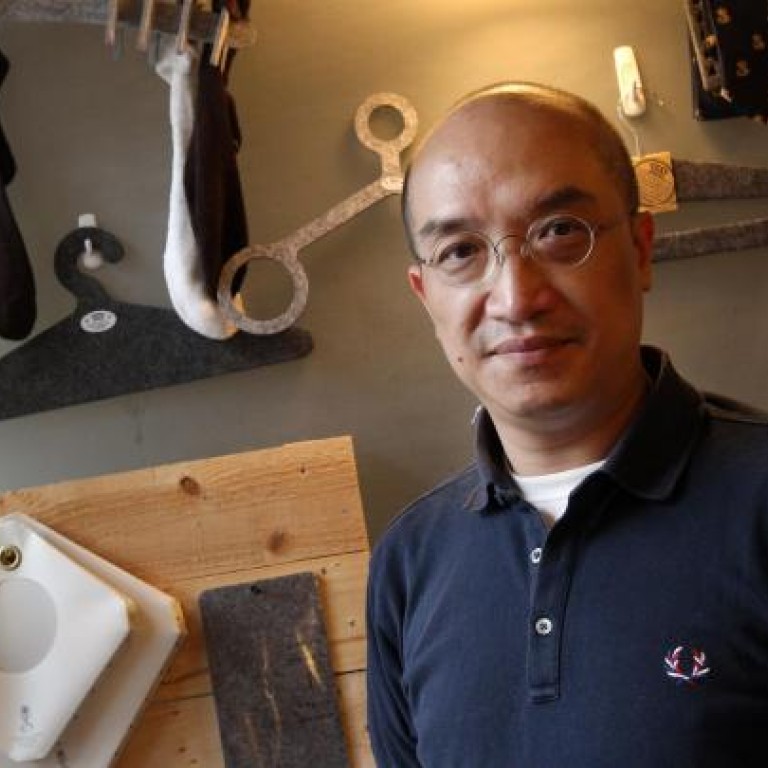
Designer's OOObject homeware line turns scraps into style
Turning food waste into useful items is one green solution this designer brings to the table
Old coffee grounds, used tea leaves and coal ashes make it to the rubbish bin quicker than you can say eco-friendly, which is why one Hong Kong designer has taken this trash and turned it into something useful.
Gewah Lam Cheong-leung, 50, and his team of seven at Green & Associates have spent the last few years experimenting with the waste produced at the breakfast table to create new homeware under the OOObject brand.
"Every morning when you wake up and have breakfast, there are so many things that you use that produce waste," Lam said from his design studio in Kwai Chung.
Food waste makes up 40 per cent of the city's solid waste, and last week the city came one step closer to tackling its waste problem, with the government setting a goal of reducing food waste by 10 per cent by 2015.
A new steering committee met for the first time last Thursday to discuss strategies for reducing food waste at the source and improving household habits.
After the meeting, Environment Secretary Wong Kam-sing said two working groups - one on education, the other focused on industrial best practices - had been set up. Both would look to overseas examples such as London for food-waste-reduction strategies. The groups will meet again next February.
But for Lam, an industrial designer, there are real solutions already at hand.
Using coffee grounds and tea leaves to make products is not new, according to Lam. But the technology continues to develop, with Lam and his team also exploring new ideas.
Lam's company now employs about 100 people at a factory in Dongguan. It makes a range of products, such as tea sets, tumblers and flower pots made from trash like coal ashes from a power station and used tea leaves from local cafes and restaurants.
They also use apple pomace (the apple flesh once all the juice has been squeezed out) from juice factories in Shandong; old coffee grounds from Pacific Coffee Company stores in southern China; and pineapple rinds and milk fibre from nearby factories.
"We can send a message about waste, and that's the most important part - the education," Lam said. While environmental issues are hot topics, Lam believes "the government's policy approach is slow at the moment".
Pacific Coffee sells OOObject items made from its coffee grounds at its flagship store in Causeway Bay, and WWF Hong Kong features the brand in its "Second Life" range.

